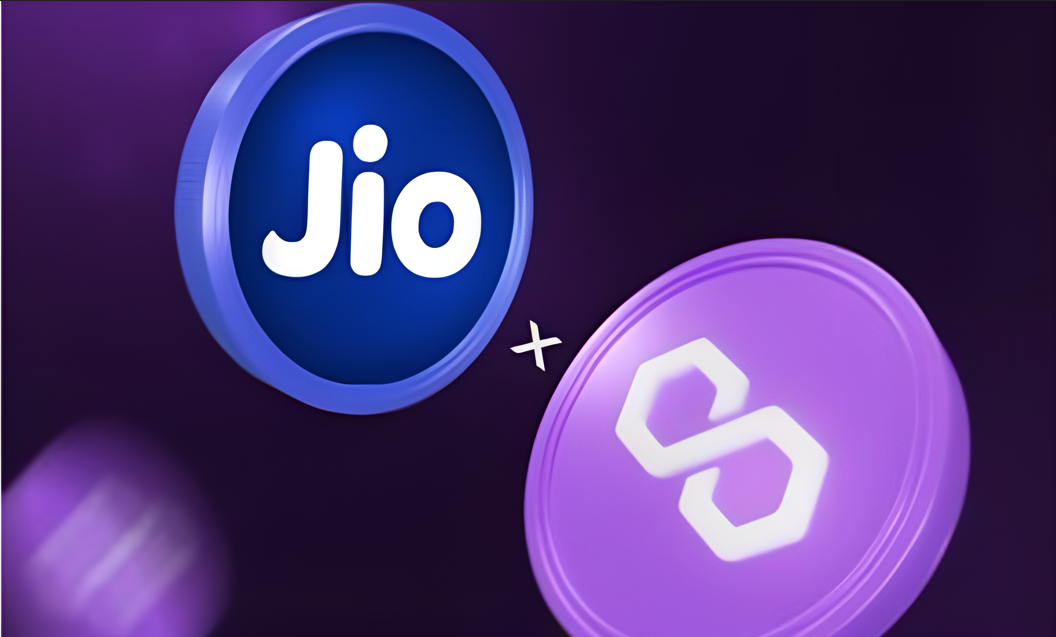Reliance Jio, India’s largest telecom operator, has ventured into the cryptocurrency realm with the introduction of JioCoin. This blockchain-based reward token is designed to enhance user engagement within Jio’s extensive ecosystem. Notably, JioCoin operates on the Ethereum layer 2 network, Polygon, ensuring scalability and efficiency.
The Genesis of JioCoin
Speculation about Reliance Jio developing an in-house cryptocurrency began in 2018. Reports indicated that a dedicated team, led by Akash Ambani, was assembled to explore blockchain applications across various sectors, including banking, fintech, real estate, and healthcare. However, concrete details about the project’s progress remained scarce until early 2025.
Partnership with Polygon
In January 2025, Jio announced a strategic partnership with Polygon Labs to integrate blockchain capabilities into its services, catering to approximately 450 million users. This collaboration underscores Jio’s commitment to leveraging cutting-edge technology to enhance user experience and operational efficiency.
𝗝𝗶𝗼 𝗝𝘂𝘀𝘁 𝗖𝗵𝗮𝗻𝗴𝗲𝗱 𝗜𝗻𝗱𝗶𝗮’𝘀 𝗖𝗿𝘆𝗽𝘁𝗼 𝗚𝗮𝗺𝗲 🇮🇳@reliancejio just dropped a bomb by launching #Jiocoin on Polygon network. This is bigger than most realize – Jio has 470M users while the entire crypto space has 500M. The scale is absolutely insane.
Jiocoin… pic.twitter.com/t2NnGyNr1p
— Budhil Vyas (@BudhilVyas) January 16, 2025
Understanding JioCoin
JioCoin is envisioned as a reward token to incentivize user participation within the Jio ecosystem. Users can earn JioCoins by engaging in activities such as watching promotional content, participating in events, and utilizing Jio’s services. The accumulated tokens are credited quarterly to users’ Polygon wallets and can be redeemed for products and services offered by Jio and its affiliates. The terms of use also mention the requirement of a UPI-linked bank account for redemption, hinting at potential fiat convertibility in the future.
Regulatory Landscape
The launch of JioCoin comes at a time when India’s regulatory framework for cryptocurrencies is still evolving. The Reserve Bank of India has expressed concerns over private cryptocurrencies, even considering a complete ban, while promoting the digital rupee, the nation’s central bank digital currency. Despite the ambiguity, India’s youth continue to show significant interest in crypto investments. JioCoin’s introduction, being directly linked to a major conglomerate, may prompt regulatory bodies to provide clearer guidelines in the near future.
Potential Implications
JioCoin’s integration into the daily lives of millions could set a precedent for corporate-backed cryptocurrencies in India. By offering tangible rewards and fostering a blockchain-based economy within its ecosystem, Jio aims to revolutionize user engagement and loyalty programs. This move could also encourage other corporations to explore similar ventures, further embedding blockchain technology into mainstream applications.
Reliance Jio’s introduction of JioCoin marks a significant milestone in India’s digital transformation journey. By embracing blockchain technology and launching a proprietary cryptocurrency, Jio is poised to redefine user engagement and set new standards in the telecom industry. As the regulatory environment becomes clearer, JioCoin could pave the way for broader acceptance and integration of cryptocurrencies in India’s corporate sector.
FAQs
What is JioCoin?
JioCoin is a blockchain-based reward token introduced by Reliance Jio to incentivize user engagement within its ecosystem. Users can earn JioCoins through various activities and redeem them for products and services offered by Jio and its affiliates.
How can users earn JioCoins?
Users can earn JioCoins by participating in activities such as watching promotional content, attending events, and utilizing services within the Jio ecosystem. The specific activities and corresponding rewards are detailed in the JioCoin wallet’s terms of service.
On which blockchain is JioCoin built?
JioCoin operates on the Ethereum layer 2 network, Polygon, which offers enhanced scalability and efficiency for blockchain transactions.
Can JioCoins be converted to fiat currency?
While the primary purpose of JioCoins is to redeem them for Jio’s products and services, the terms of use mention the requirement of a UPI-linked bank account for redemption, suggesting potential fiat convertibility in the future.
What is the regulatory stance on JioCoin in India?
India’s regulatory framework for cryptocurrencies is still developing. The Reserve Bank of India has expressed concerns over private cryptocurrencies and is promoting the digital rupee. JioCoin’s launch may prompt regulators to provide clearer guidelines regarding corporate-backed cryptocurrencies.
How does JioCoin impact the Indian cryptocurrency market?
As one of the first corporate-backed cryptocurrencies in India, JioCoin could influence the market by encouraging other companies to explore blockchain-based solutions, thereby fostering broader acceptance and integration of cryptocurrencies in the country.

